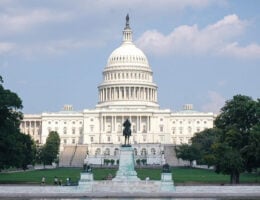Trench Rossi Watanabe* is delighted to host an in-person conference: LATAM Trade Day: 100 Days of the Trump Administration – New Trends For International Trade. Along with the Brazilian team, the panels will feature guest speakers from Baker McKenzie from across the US, Europe, Asia and of course Latin America – including colleagues from Colombia, Argentina, Mexico, Peru, Chile and Venezuela.
In keeping with tradition, we are pleased to invite you to our annual Global Year-End Review of Import/Export & Trade Compliance Developments Conference. The conference will provide valuable insights on the latest developments, challenges and opportunities in the ever-changing landscape of international trade.
We are holding this conference in a split-hybrid format, with an in-person event in Santa Clara, CA, on 12 November and virtual panels on 19-21 November.
In our final week of the Annual Compliance conference, we focussed on key issues being faced by companies on ESG, supply chain and product compliance. Specifically, we discussed the new legal landscape in the EU and UK on product compliance and liability, supply chain due diligence trends and developments, and how to manage environmental, social and governance risks and increasing legislation in the US, UK and EU aimed at cracking down on vague, misleading, or unsubstantiated green claims.
In the realm of international trade, the anti-dumping instrument plays a crucial role in safeguarding domestic industries against unfair trading practices. Navigating the intricate landscape of anti-dumping procedures across various jurisdictions requires an understanding of each jurisdiction’s rules and processes. To help further that understanding, the Baker McKenzie global trade remedies team has put together a comparative table of anti-dumping procedures in five key anti-dumping jurisdictions: the European Union, the United States, Brazil, China, and Japan.
View the recorded sessions from our 2023 Virtual Global Trade Conference where international trade compliance lawyers from around the world reviewed major developments impacting international trade.
The United States is one of the most active countries in investigating so-called “unfair pricing” in the form of dumping or subsidization by foreign countries. In the past three years, the United States has initiated five investigations against imports from Brazil, having very recently initiated a case involving brass rods. Brazilian producers/exporters should be aware of the US activity in the antidumping and anti-subsidy space and, where there is a risk of such an action targeting a company’s exports from Brazil to the United States, consider taking steps to prepare in advance and implement a global trade remedies compliance, prevention, and action strategy.
Join Baker McKenzie’s Consumer Goods & Retail Industry Group for their events entitled Redefining Luxury & Fashion: What Fits in the Future? scheduled to take place in London on Tuesday, 14 March 2023 and in Paris on Thursday, 16 March 2023.
US Customs and Border Protection updated its guidance related to the new Uyghur Forced Labor Prevention Act (UFLPA) Region Alert, and announced that it will be deployed in the Automated Commercial Environment on 18 March 2023. The deployment of the UFLPA Region Alert was delayed since it was first announced by CBP in 2022.
On 5 January 2023, President Biden signed the Protecting American Intellectual Property Act into law. This law seeks to deter the theft of US intellectual property by non-US actors by threatening to impose economic sanctions on those engaged in trade secrets theft. This law adds to existing measures available under US law, such as criminal prosecution, civil lawsuits, and/or designation to a US restricted parties list such as the Entity List (maintained by the US Commerce Department’s Bureau of Industry and Security).
Our latest sustainability guide, ESG Policy Guide – The Future of Sustainability Legislation for Luxury, has been developed in collaboration with Positive Luxury, the company behind the Butterfly Mark, a unique mark awarded to luxury lifestyle brands, retailers and suppliers in recognition of their commitment and verified actions to creating a positive impact on our world. It features recent and upcoming developments in ESG legislation and policies in the US, UK and the EU and explains how these impact the luxury, fashion, and cosmetics industries.









